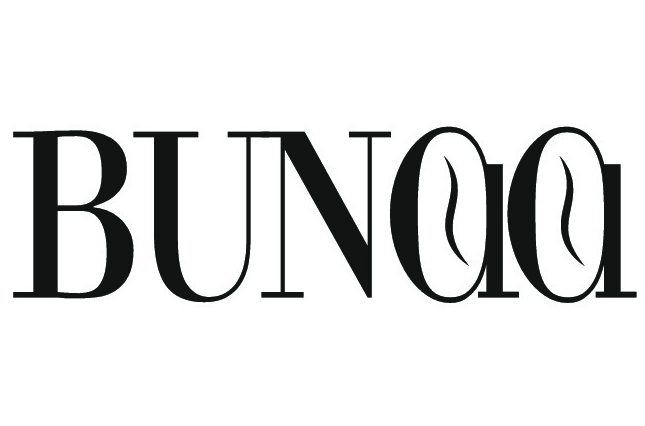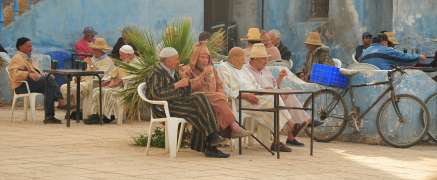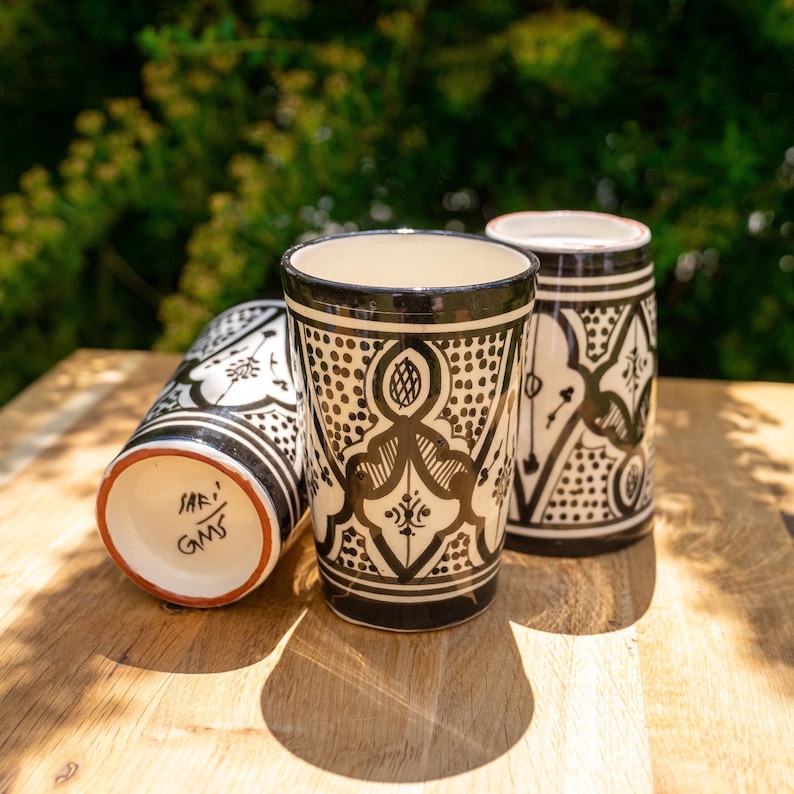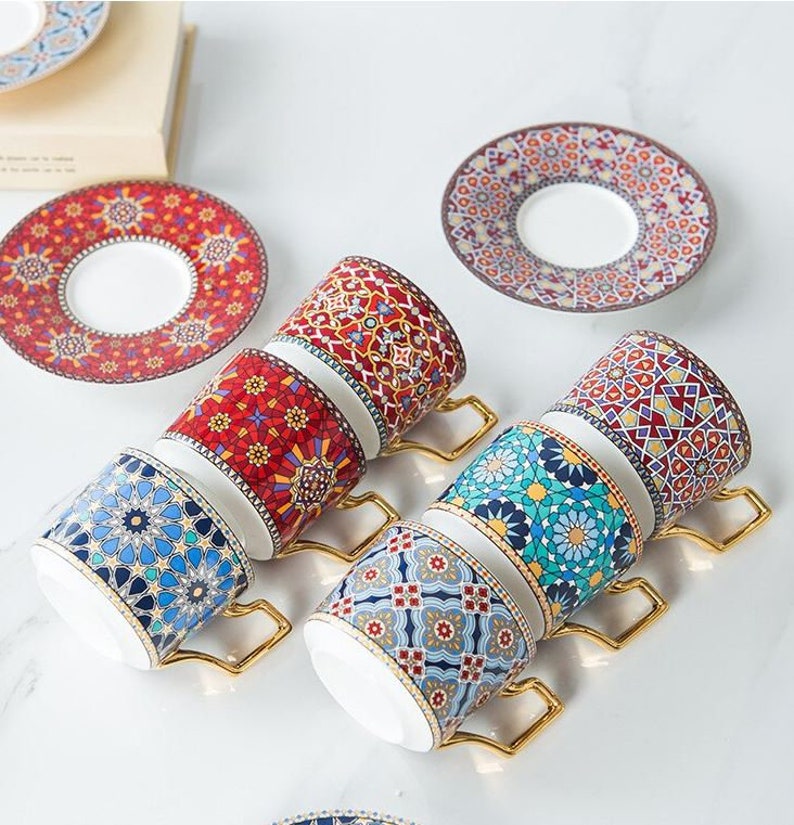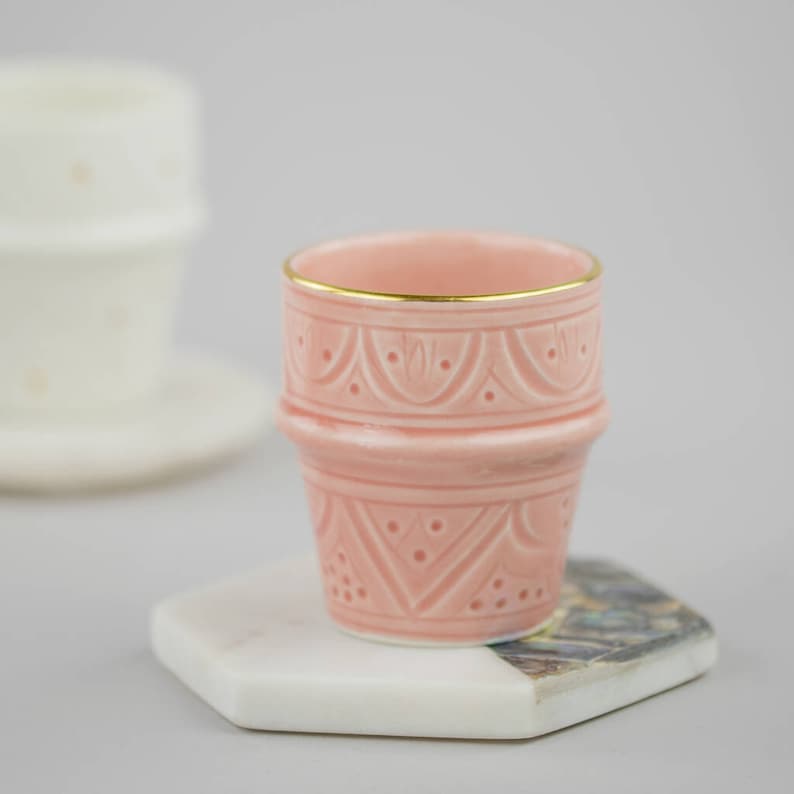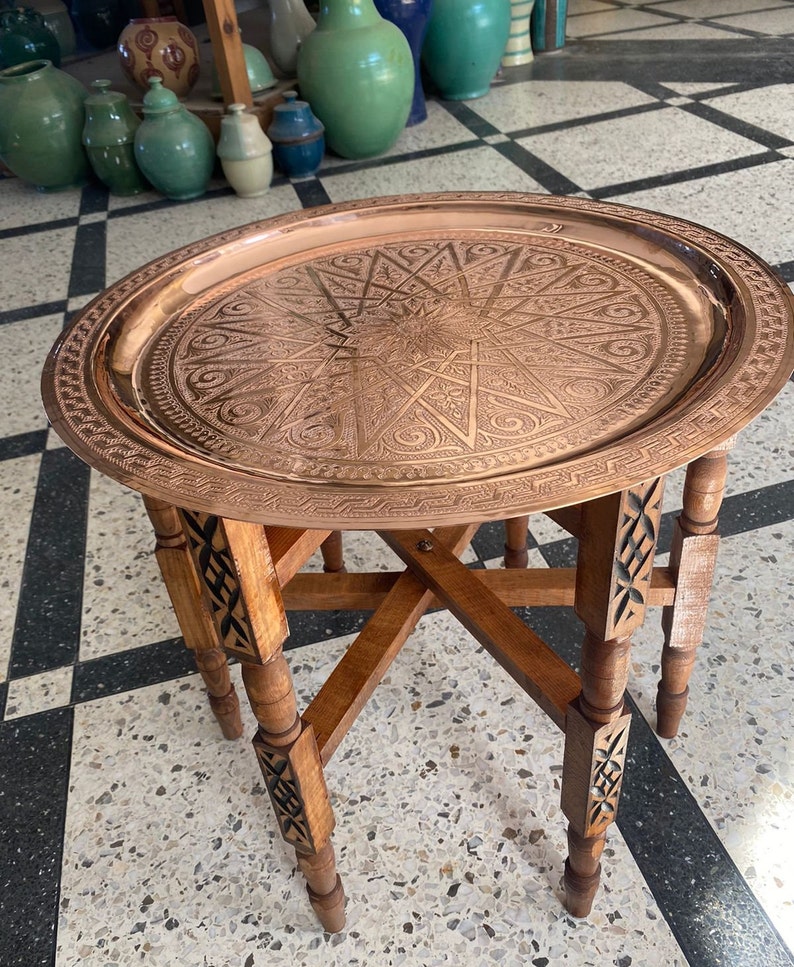Tea is the national drink in Morocco, but coffee in Morocco is more popular in urban cafés.
Moroccan coffee house culture is a male empire. Visitors talk about business while they enjoy a coffee or tea. Women, on the other hand, are more likely to meet at “coffee time” with friends at home between 5 and 7 pm. In the new generation, this separation is increasingly blurred. Read about coffee in Morocco and try diverse delicious recipes from traditional dishes.
Preparation of Coffee in Morocco
Qahwa Kahla
- French: café noir or café cassis
- Traditionally, coffee beans are roasted on a charcoal fire for a few minutes and ground in a mortar. Before the coffee is brewed, the guests are asked how much sugar they want in their coffee:
- no sugar (murrah)
- medium (mazboutah)
- sweet (hilweh)
- Depending on the event, however, this can also be predefined. Thus, after dinner, coffee is only slightly sweetened.
- Prepared sweet for weddings, engagements, baptisms or birthdays.
- At the time of death or other sad matters unsweetened.
- Sometimes some cardamom seeds and cinnamon are also added.
Advertisment
- For a cup of coffee mix 1 tsp ground coffee, 1-2 tsp of sugar and 1 cup of water.
- All together is boiled in a brass or aluminum coffee pot (delah) until the sugar is dissolved and foam rises to the top of the pot.
- Then take the pot from the fire, until the foaming ceases and brings the coffee at least two more times to the cooking.
- The coffee in Morocco is poured from the left hand into the coffee cups (finjal) held in the right hand.
- Since the coffee in Morocco is very strong, the cups are usually filled only to 2/3.
- The primary guest is the first to get his coffee, then the other guests, and finally the one who serves. Otherwise, culture, age, rank, or sometimes the sex decides, who gets the coffee first.
- On the table stands a jug of orange blossom water, from which the guests can add a few drops to the coffee.
- Then take the cup in the right hand, wait briefly until the coffee set has settled, and enjoy the Qahwa.
- Fruit such as dates are often served.
- If you do not want a further cup, you shake the cup and say fi sehtuk“/”fi sehtik“ to the host, which means “to your health”. Also “on your happiness” (fil afrahh) one can say.
Qahwa Helib
- French: nous nous or nss nss
- Nous nous means half and half. Like milk coffee, it is made up of half-milk and half-espresso and is often ordered from women.
Cafe Crème
- A cup of milk with Instant Nescafe – which is found in many Moroccan households.
Café des épices
- A mixture of spices such as sesame, black pepper and nutmeg is mixed with the coffee beans and ground. Then the coffee is brewed.
Advertisment
Coffee with cloves
- Bring 2 cups of milk with 3 cloves to the boil, allow them to cool 1 min. and remove the skin and cloves. Then add coffee and sugar to taste.
Coffee with black pepper
- Bring 2 cups of milk to the boil, allow them to cool 1 min., remove the skin and add 1/8 tsp of black pepper. Then add coffee and sugar to taste.
Coffee with ras el-hanout
- Bring 2 cups of milk to the boil, allow them to cool 1 min., remove the skin and add 1/4 teaspoon of ras el-hanout. Then add coffee and sugar to taste.
Mint tea
- It has probably existed in Morocco since the 18th century and spread throughout the country in the middle of this century.
- Sultan Moulay Ismail has probably received tea and sugar from Europe for the release of European prisoners. The Moroccans quickly added their own character to the tea with the addition of mint.
Advertisment
For advertising links on this page the dealer may pay a commission. These advertising links are marked with an asterisk (*) – images and banners are marked with “Ads” or “Advertisment”. There are no costs for you. Find more information in the data protection regulations here.
